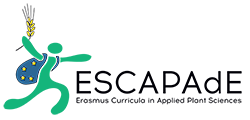English title:
Soil protection
Course ID:
911301
ECTS credits:
3,0
Title in native language:
Soil protection (in Eng.)
Soil protection (in Eng.)
Term Semester:
Spring/Summer
Instruction language(s):
English
Course content:
- Introduction
- Global issues and drivers of soil loss and degradation (theory / lecture)
- Major soil threats at global, European and national level (theory / lecture)
- Case studies covering different aspects of soil degradation and soil management (blended learning component: homework, peer review workshop).
- Global issues and drivers of soil loss and degradation (theory / lecture)
- Major soil threats at global, European and national level (theory / lecture)
- Case studies covering different aspects of soil degradation and soil management (blended learning component: homework, peer review workshop).
Expected previous knowledge:
Fundamentals of soil science (at least bachelor level, ideally the level after passing the exam of 911.014 - Soil Science Refresher)<br>Proficient English
Learning outcomes:
Overall aim: Provide an overview on major problems of soil protection and sustainable land use at global, European and national (Austrian) level.
Objectives:
- make you familiar with the main soil threats at global, european and national level
- make you familiar with (sources of) information on the current state of soil
- give you an appreciation of instruments of soil protection and their application to specific problems
- encourage critical evaluation and challenging of current concepts of soil protection
- provide guidance for informed use of soil information and decision making
- enable you to develop possible solutions for better protection of soil
Expected learning outcomes:
- Know and comprehend fundamental soil threats
- Recall the main soil threats
- Know about major drivers and causes of soil degradation
- Put them into context of natural, societal and economic conditions
- Rank their relative importance at national, European and global level
- Know about the state of soil (degradation)
- Recall major pattern of soil degradation at national and European scale
- Know about sources of soil information and their application
- Recall important sources of soil information in Austria, Europe and at global
level
- Make informed use of soil information
- Know about instruments / measures of soil protection
- Apply your knowledge to a case study
Objectives:
- make you familiar with the main soil threats at global, european and national level
- make you familiar with (sources of) information on the current state of soil
- give you an appreciation of instruments of soil protection and their application to specific problems
- encourage critical evaluation and challenging of current concepts of soil protection
- provide guidance for informed use of soil information and decision making
- enable you to develop possible solutions for better protection of soil
Expected learning outcomes:
- Know and comprehend fundamental soil threats
- Recall the main soil threats
- Know about major drivers and causes of soil degradation
- Put them into context of natural, societal and economic conditions
- Rank their relative importance at national, European and global level
- Know about the state of soil (degradation)
- Recall major pattern of soil degradation at national and European scale
- Know about sources of soil information and their application
- Recall important sources of soil information in Austria, Europe and at global
level
- Make informed use of soil information
- Know about instruments / measures of soil protection
- Apply your knowledge to a case study
Teaching and learning methods:
Interactive lecture (theory part) combined with blended learning components (Homework, peer review workshop) handled through BOKU Learn.
Exam method:
See course page 911301 at BOKU Learn
Organisation: University of Natural Resources and Life Sciences Vienna
Country:
Austria
Acronym:
BOKU
ERASMUS+ code:
A WIEN03
Teaching period summer semester:
22. Feb 2021 - 30. Sep 2021
Teaching period winter semester:
13. Oct 2020 - 21. Feb 2021
University website:
